Ahh, the love between a man and his horse! I wrote this dark tribute to my daily collegiate habit for a creative writing class in 1987. Half the class loved it, the other half didn’t get that it was about the show Mr. Ed, which I thought was perfect. It’s still one of the favorite things of mine that I’ve ever written and led to my perhaps unsellable novel, Waiting for Clark Kent. I called them “existential cartoons” and they took lightweight fictional material and treated them with hyper reality. I’m pretty sure I was way ahead of my time (Pleasantville, Heroes), but I’m not really much of a fictional plotter and never cashed in.
The Unalarming Disappearance of Wilbur Post
Ed picked up the pencil that he had used for nearly forty odd years to dial the telephone that was, next to Wilbur, his only means of communication with the outside world, the same world he had publicly spurned with his silence. Ed had given Wilbur nearly hundreds of opportunities to regret the existence of the outside line, but it was essential to his business, and although he would never admit it, Ed’s prank intrusions into the mundane workings of his life never failed to secretly amuse him. Ed’s attempt to raise money by selling real estate long distance had come close, but that was a long time ago and it had been a while since Ed had actually been reprimanded for his telephone usage.
Ed’s teeth were no longer as strong as they had once been, but age had brought skill and technique enough to at least reach the operator, the starting point of almost all of his various correspondences.
“Hello, honey!”
Ed still possessed the deep strong baritone of a western hero, at times quivering in the manner of Jimmy Stewart or James Dean. The dogmatic glee and impetuousness of his youthful voice replaced with a subtle edge of reflection and doubt. The adventures of his youth outmoded, Ed spent each new day engulfed by time and boredom, yet the feeling that it was running out became all pervasive making it almost impossible to concentrate. So many of the pieces were just lost or never there in the first place. His world so cut off and remote, and yet that was always his choice, his decision. Except for telephone calls and maybe a small child or two, he only spoke to Wilbur, or as he had said mockingly many times before, “I only speak to dumb animals and you Wilbur,” forcing Wilbur to wonder aloud whether Ed drew any distinction between the two.
“Did I ever tell you about my son? He wasn’t really my son, but he was the closest thing to one that I ever knew. Not that there aren’t many little Edwards running around, I just don’t stay around long enough for that.”
The day Wilbur moved in was the first day Ed had ever really spoken. Without Wilbur there was never any reason to speak. Ed never knew where the words came from. He had never asked for them. He often regretted them. Language was fine in and of itself, but speech was in no way an isolated capability. Although many people appeared to Ed to have the incredible ability to express themselves without any signs of intelligence whatsoever, he had not been so blessed, so often alone left with the words, thoughts, questions. There would be distractions: comic books, rock and roll, television, but he would gladly banish his favorite show if he could just dispel those disturbing words from his head. He’d trade them all for a ride in the park with Wilbur or an adventuresome run from the victim of yet another practical joke. If this was color, he’d gladly take black and white and live in a mindless sitcom, which never approached the workings of the world, the questions of time. And yet this feeling would pass, for it was also the curse of intelligence that the appeal of mindless bliss was rationally discarded as folly. To go through life with blinders on was a defeat he would not accept. If the words told him that in this cruel heartless world without meaning he was only an animal, then they also told him that he was a thinking one.
“We saw him at the riding stables. He was just a little pony, cute as can be. I am quite a specimen, but even I was never that cute. Anyway, they used him for the little kids, a dollar a ride, but he was ornery, just like me. I begged Wilbur to buy him and you know Wilbur, he was a sucker for a little baby like that. Carol was furious, it was one of the best days in my life, and I’ve had good ones, let me tell you.”
Wilbur was his one true outpost in the world. He had been given the ability to talk to anyone in the world, and yet despite Wilbur’s urging, he really had no ambition to speak to anyone else. Wilbur’s wife Carol clung hard for his affections, and although he loved her as much as any man could, it was pretty clear that he was married to his secret friendship with Ed. Nothing could change that. Conflicts, like the picnic where Ed had jealously let the air out of Wilbur’s bicycle tires right before the vicious onslaught of a rainstorm, were usually remembered in terms of the cold the two had shared after Ed’s apology. Each mess and entanglement was eventually looked on as another great adventure, each with a happy ending which strengthened their friendship.
“True blue, buddy boy, ol’ pal,” Ed was fond of saying.
Carol’s death was no exception. With the competition gone, Wilbur, although more quiet and reserved, was able to spend more time with Ed. In fact Wilbur hardly ever went back into the old house, almost completely living inside of the stable with Ed, far away from the memories of his domestic existence. In fact they almost never left. Almost completely forgotten were the rides in the park, along with the adventure, the intrigue. The sitcom of their life had lost not only the complication but the fun.
With Carol gone, there was no challenge to the secret. Wilbur tried to bring Ed out more, if only to have one other person tell him that he was not almost completely out of his mind, but Ed wouldn’t have it. Alone, sleep was Wilbur’s only happiness; now they slept together much closer than the single beds had allowed him to sleep with Carol. Ed on the other hand, relished the companionship, the chess games, the discussions. Without Wilbur he was left to the infuriating workings of his mind, time only reminding him of the endless duration of each and every moment in the day.
“I loved that little rascal, of course I couldn’t talk to him, but sometimes it was easier to communicate without speaking. Addison hated him too. That bitter ol’ miser loved his silly apple orchard more than his wife, or anybody else. Told Wilbur to get rid of the little guy or else, and how could I tell him that, poor little pony.”
Time was the enemy. It worked against their friendship, the more they were together the less they had to discuss, the more they slept and watched T.V. Wilbur begged Ed to talk, not just to him, but to the whole world, let them know the extent of their friendship, let them expand their circle, let them know he wasn’t really insane. All this confused Ed. He didn’t hear the idle talk of the neighborhood, and if Ed’s silence was the only source of discussion, it was still enough to have Wilbur lay by his side, to know he was no longer alone.
“Addison hated the little guy, but he was my son, and even Wilbur found it hard to understand. He had Carol, and I was alone. The little guy was young; he needed my help, my protection. Wilbur tried to talk to me about it, but the little guy was so cute and Wilbur is such a sucker.”
Ed couldn’t remember exactly why he had chosen to speak to Wilbur. He was an architect, and a clumsy, silly one at that, but even before they had spoken, from the moment they had found each other, he had loved Ed, and yet the spark had left Wilbur’s eyes. He was thin, unshaven, old. After a while, they no longer spoke. The secret link between them erased, to where Wilbur was no longer sure himself that Ed could talk, and too afraid to find out. However, the initial impulse, the love Ed felt was still there, and as long as Wilbur was around Ed was happy.
“One day, the owner of the riding stables came to see Wilbur. He says they want the little ol’ guy back for the kids who miss him. Wilbur, of course, corrected him. The little guy was only a pony. Turns out my baby was a miniature Mexican horse much older than me. I relinquished, and back he went to the pony rides. Nobody wanted an old, old horse, not even me.”
One day Wilbur woke realizing much clearer than ever before that the part of his life that mattered was truly over. To this day, his weekly shopping trip had lasted for three weeks and Ed was lonely and confused. Food was scarce, and he had thinned drastically, but nevertheless he was hardly conscious of his once proud form. Wilbur was gone and he was left alone to himself, time, words. If only he knew what was keeping Wilbur. Lonely, but confident, Mr. Ed waited Argus-like for his only friend as time slowly passed.

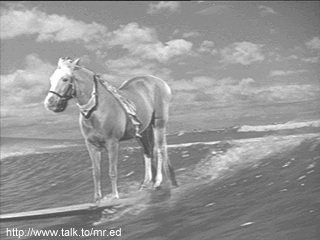
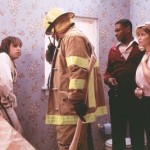
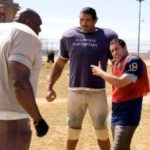


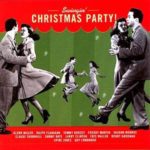
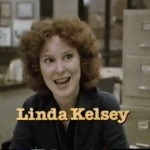
Thank you so much. I wrote that in college I still think it’s the best thing I’ve ever written. I wrote a novel about Superman afterward called “Waiting for Clark Kent.” I never showed them to anyone. It’s here but if you would read it I would gift it to you.
https://www.amazon.com/Brad-Laidman/e/B07MLNPYC4%3Fref=dbs_a_mng_rwt_scns_share
Brilliant! The ending practically breaks my heart, but it’s very well done.